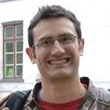Foundations of Quantum Mechanics: Quantum Logic and Quantum Structures
A special issue of Entropy (ISSN 1099-4300). This special issue belongs to the section "Quantum Information".
Deadline for manuscript submissions: closed (15 October 2019) | Viewed by 14615
Special Issue Editors
Interests: foundations of quantum mechanics; quantum information theory; quantum probabilities; quantum logic
Special Issues, Collections and Topics in MDPI journals
2. Università degli Studi di Cagliari, I-09123 Cagliari, Italy
Interests: quantum information processing; quantum correlations; uncertainty relations; majorization theory and its applications
Special Issues, Collections and Topics in MDPI journals
Interests: problem of the arrow of time; interpretation of quantum mechanics; nature of information; foundations of statistical mechanics; philosophy of chemistry
Special Issues, Collections and Topics in MDPI journals
Interests: interpretation of quantum mechanics; quantum decoherence; classical limit of quantum mechanics; quantum information theory
Special Issues, Collections and Topics in MDPI journals
Special Issue Information
Dear Colleagues,
Since its origins, quantum theory posed deep questions with regard to the fundamental problems of physics. During the last few decades, the advent of quantum information theory and the possibility of developing quantum computers, gave rise to a renewed interest in foundational issues. Research in the foundations of quantum mechanics was particularly influenced by the development of novel laboratory techniques, allowing for the experimental verification of the most debated aspects of the quantum formalism.
The VIII Conference on Quantum Foundations (https://sites.google.com/view/viiijfc), to be held during 21–23 November, 2018, at the CAECE University, Buenos Aires, Argentina, aims to gather experts in the field to promote academic debate on the foundational problems of quantum theory. This Special Issue captures the main aspects of this debate by incorporating a selected list of contributions presented at the conference. Researchers not attending the conference are also welcome to present their original and recent developments, as well as review papers, on the topics listed below. All contributions will be peer-reviewed.
Topics of the Special Issue:
- Quantum Information Science
- Quantum Statistical Mechanics
- Information Measures in Quantum Theory
- Quantum Correlations
- Uncertainty relations
- Geometrical Methods Applied to Quantum Theory
- Violation of Bell Inequalities
- Quantum Probabilities
- Decoherence and Classical Limit
- Quantum Computing
- Interpretations of Quantum Mechanics
- Quantum Contextuality
- Quantum Indistinguishability
- Quantum Logic
- Algebraic Methods in Quantum Theory
- Hidden Variable Theories
- Non-linear Methods Applied to Quantum Theory
- Foundations of Relativistic Quantum Mechanics
Dr. Olimpia Lombardi
Dr. Sebastian Fortin
Dr. Federico Holik
Dr. Gustavo M. Bosyk
Guest Editors
Manuscript Submission Information
Manuscripts should be submitted online at www.mdpi.com by registering and logging in to this website. Once you are registered, click here to go to the submission form. Manuscripts can be submitted until the deadline. All submissions that pass pre-check are peer-reviewed. Accepted papers will be published continuously in the journal (as soon as accepted) and will be listed together on the special issue website. Research articles, review articles as well as short communications are invited. For planned papers, a title and short abstract (about 100 words) can be sent to the Editorial Office for announcement on this website.
Submitted manuscripts should not have been published previously, nor be under consideration for publication elsewhere (except conference proceedings papers). All manuscripts are thoroughly refereed through a single-blind peer-review process. A guide for authors and other relevant information for submission of manuscripts is available on the Instructions for Authors page. Entropy is an international peer-reviewed open access monthly journal published by MDPI.
Please visit the Instructions for Authors page before submitting a manuscript. The Article Processing Charge (APC) for publication in this open access journal is 2600 CHF (Swiss Francs). Submitted papers should be well formatted and use good English. Authors may use MDPI's English editing service prior to publication or during author revisions.
Keywords
- quantum logic
- quantum correlations
- uncertainty relations
- quantum probabilities
- decoherence and classical limit
- quantum computing
- interpretations of quantum mechanics
- quantum contextuality
- quantum indistinguishability
- hidden variable theories








